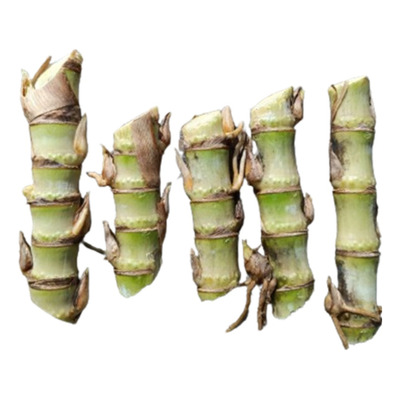BRS Kurumi, as a tropical forage, is adapted to most topical regions. Cultivation in deep, well-drained soil with good fertility is recommended. Kurumi is extremely demanding on soil fertility, therefore, it requires pH levels above 5.5 and Base Saturation of 50 to 60%.
Planting must be carried out with seedlings or cuttings, spaced 0.5 x 0.5m apart. Phosphate fertilizer must be applied in the planting furrow or in the hole.
BRS Kurumi is characterized by its low size, semi-open clumps, green leaves and stems and a short internode. It presents vigorous vegetative growth with rapid leaf expansion and intense tillering. High proportion of leaves. Planting is carried out through vegetative propagation (cuttings).
Cultivation in deep, well-drained soil with good fertility is recommended. Demanding in fertility with the need for fertilization and irrigation to express its full productive potential.
The recommended grazing method for grazing elephant grass is rotational stocking. It is recommended that animals be brought in when the pasture is between 75 and 80 cm high and removed when the height reaches 35-40 cm. During the rainy season and with the use of top dressing after each grazing cycle, the paddocks’ rest period has been approximately 22 days.
Scientific name: Pennisetum purpureum Schum.
Cultivar: BRS Kurumi
Soil fertility: High
Growth form: Semi open
Height: 0.7 to 0.8 m
Use: Direct grazing
Digestibility: Good
Palatability: Good
Rainfall: Above 800 mm annually
Drought tolerance: Good
Cold tolerance: Good
Protein content: 18 to 20% DM
Planting depth: 15 to 20 cm
Vegetative cycle: Perennial
Forage production: 25 to 30 tons/ha/year DM



